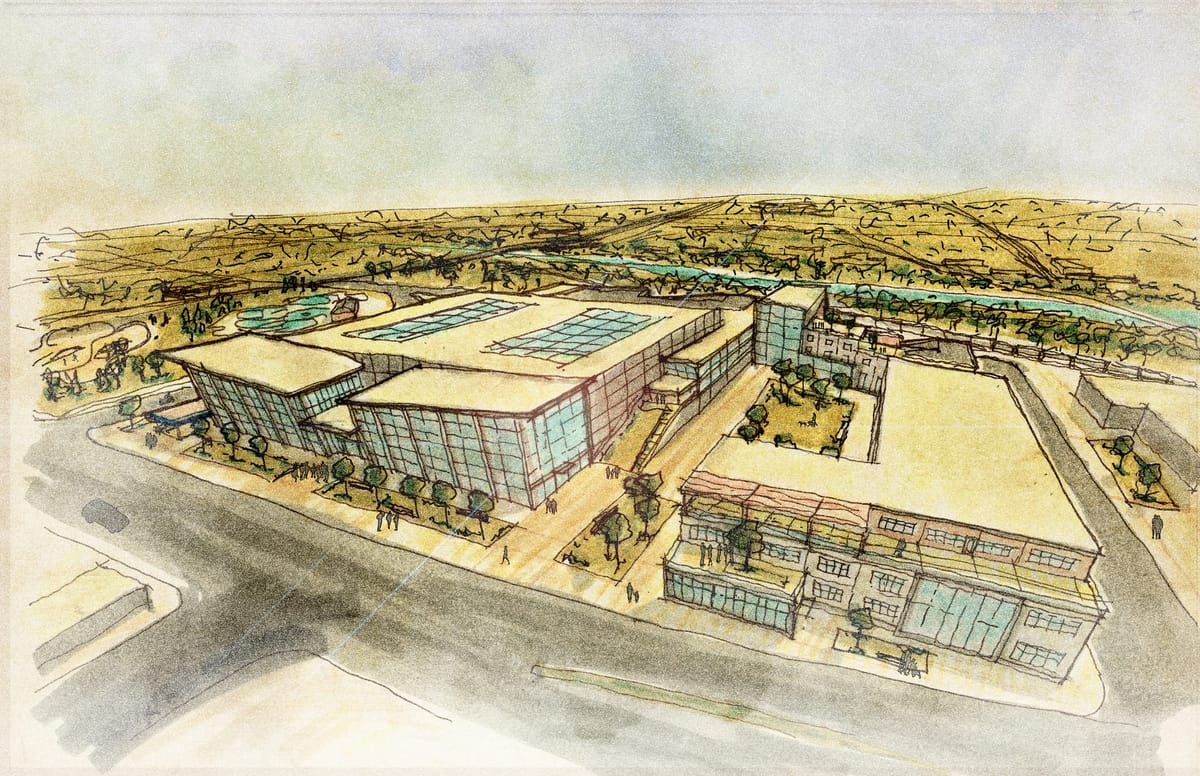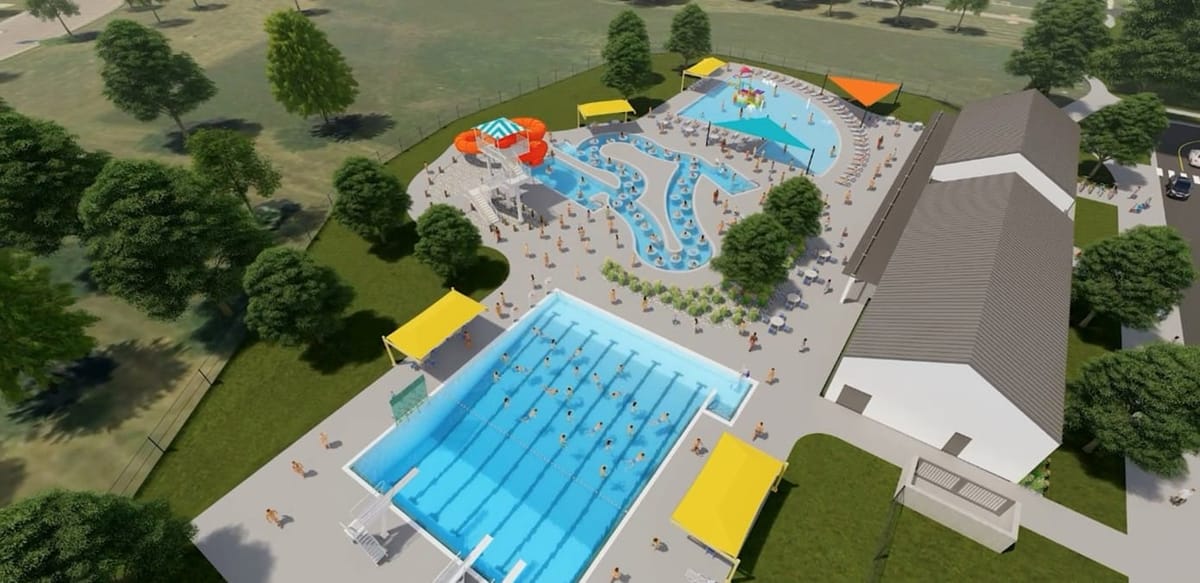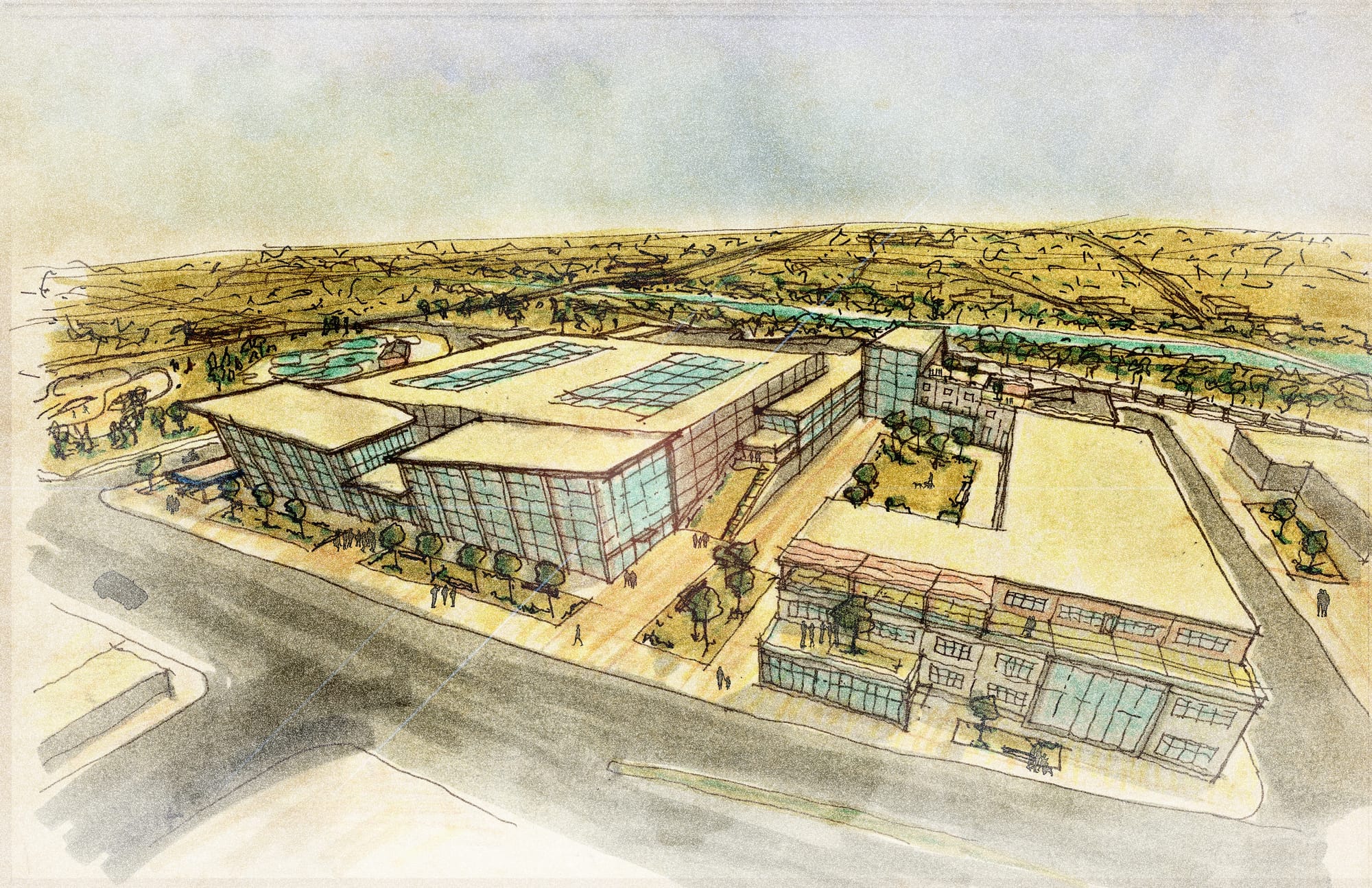Simplified: Plans to build a brand new convention center on the east side of downtown were originally pitched as part of a "2050 vision" for the city. But new details shared this week about the proposed purchase agreement have more of a "use it or lose it" tone on the Riverline District site.
Why it matters
- Members of the Sioux Falls City Council have one more week to decide whether they'll allocate $8 million to purchase a nearly eight-acre parcel of land east of downtown that city leaders are calling the "Riverline District."
- But councilors were left with more questions than answers Tuesday when city and community leaders presented the latest on future plans to build a downtown convention center, full-service hotel and more in that space as part of what Mayor Paul TenHaken initially pitched as a "2050 vision."
- And one big question mark hovered over a mention of a "repurchase option." That would give the people who currently own the land a chance to buy it back from the city if the city doesn't break ground on a project within three years in the Riverline District, according to Keith Severson, member of the Friends of the Riverline District and board member for the Sioux Falls Development Foundation.
"My confidence has been shaken that the city can do anything in that short a period of time," Councilor Curt Soehl said during a council informational meeting Tuesday.
Tell me more – how did we get here?
Conversations about the Riverline District date back to fall 2022 when the Friends of the Riverline District group was formed.
- In early 2023, TenHaken announced the land was available for purchase and asked the city to dream big about what could go there – hearkening to the location's history as a site for sports and recreation.
But a year later, the tone had shifted from hinting at a potential downtown sports stadium to going all-in on plans for a new convention center. More on the background of that decision here:

Since the convention center plans were unveiled, the city has not sought large-scale public feedback – though Planning Director Jeff Eckhoff said there are plans to do so in the coming years, ultimately leading to a public vote.
But can the city pull that off in three years?
That's the big question.
Soehl is certainly skeptical, and if history is any indicator, he has a decent right to be. Here are a few recent examples:
- The city first started talking about a new events center back in 2008, per archived meeting minutes. Those conversations took three years to make it to a public vote in 2011 – and then ground didn't break on the now-Denny Sanford Premier Center until 2012. The center itself opened in 2014.
- At the time, the $115 million bond was the largest in city history.
- By comparison, rough estimates for a new downtown convention center range from $250 million to more than $400 million.
- There's also the ongoing discussions about a $77 million aquatics bond. Those conversations date back to at least 2020, and four years later, the city has yet to issue bonds – the most recent delay due to economic uncertainty surrounding the election.
So what's still unknown?
It's worth noting that there's nothing to say the owners of the land, State Partners, LLC, would have to purchase the land back if no dirt moves in three years.
- But the option being there adds a layer of urgency to city decisions.
There also remain to be questions about how the city would fund construction of a downtown convention center.
Another big question councilors raised Tuesday was the need to state an "intended use" for the property as part of the purchase agreement.
- As it stands now, that would state the land purchase as intended for a convention center before the city conducts any wide-spread public engagement or seeks community feedback on whether folks are on board with that plan.
There's also the question of what happens to the existing convention center.
- Tuesday's presentation contained a brief mention of a pitch to turn it into an indoor recreation facility, but no further discussion of cost/logistics/access/etc. have happened publicly.
And – as cited just last week as a reason to delay a vote on the aquatics bond – there's also looming questions about the potential financial impact if voters in November approve a measure to repeal the state's tax on groceries and other consumables.

What happens next?
The City Council is expected give final approval to the 2025 budget next week.
- But Soehl noted that earmarking $8 million for the land purchase doesn't necessarily mean the council is going to approve the purchase agreement.
"Why would the council vote to purchase it without a plan?" Soehl said, later adding, "We need to see the purchase agreement, physically. We need to see the appraisal – the physical appraisal, and I need to see a plan for the arena."



